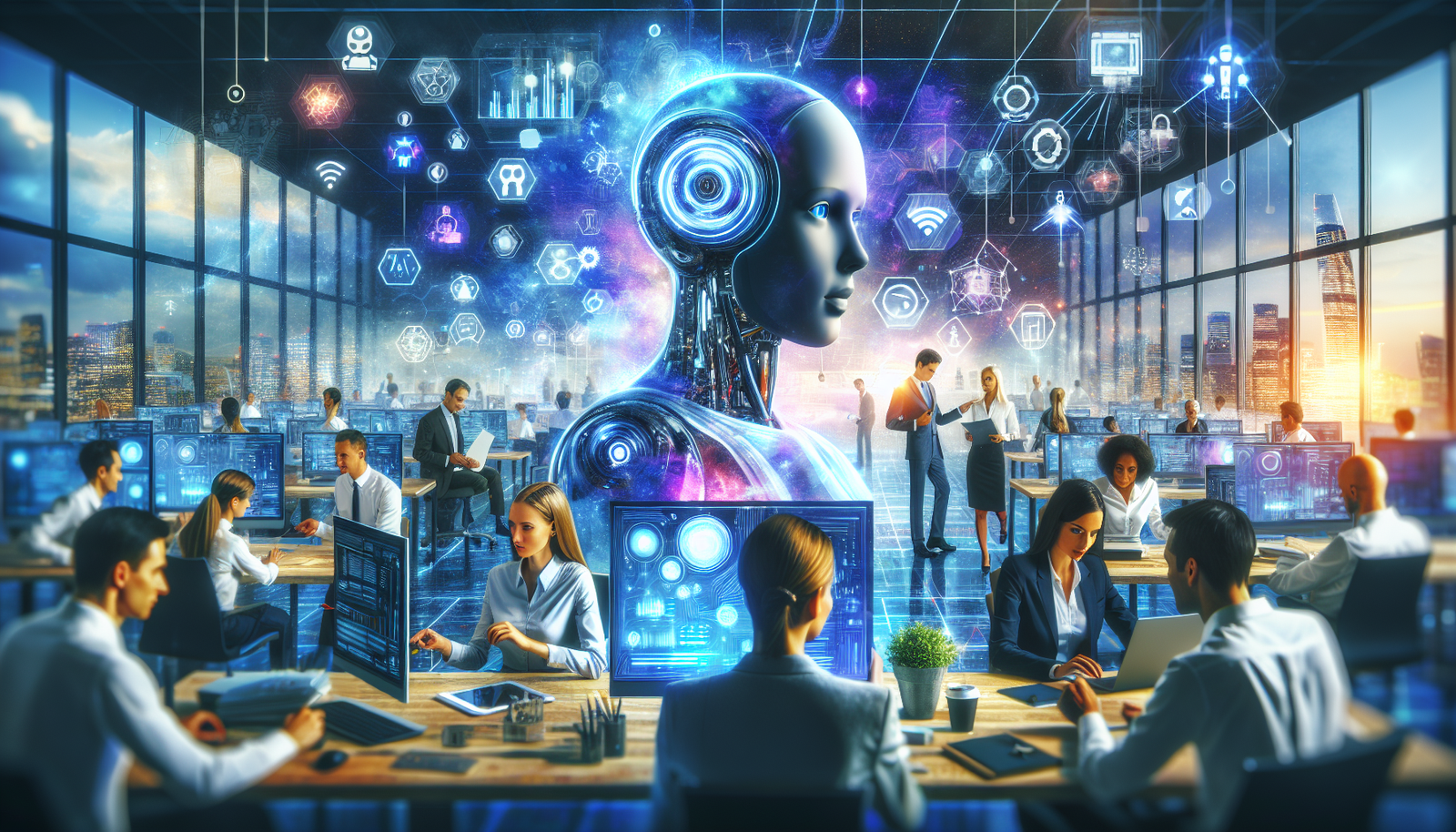Artificial intelligence is truly redefining current paradigms. By 2025, the rise of Software 2.0 will radically transform the operational landscape of companies. Multi-agent systems enable unprecedented collaborations, generating an unparalleled synergy in decision-making processes. The prospect of artificial general intelligence (AGI) heralds revolutionary cognitive capabilities that will transcend the limitations of modern applications.
These advancements create scenarios where competition and innovation merge to shape a future colored by opportunities. The challenge lies in orchestrating this transformation by effectively integrating these technologies into the organizational fabric.
Impact of Software 2.0 on productivity
The concept of Software 2.0 embodies a software revolution that will fully materialize by 2025. These emerging applications, capable of learning and evolving without human intervention, will transform work practices. Unlike traditional software, which executes defined tasks, these new tools will evolve through continuous analysis of the data they process.
Companies will adopt these intelligent software solutions to enhance their productivity. Tools such as Copilot, for instance, already bear witness to this evolution. The ability to integrate adaptive learning into professional applications promises to redefine user experience and optimize internal operations.
Towards artificial general intelligence (AGI)
By 2025, significant advancements will make AGI more tangible. Unlike current AI, which is limited to specific tasks, AGI will possess advanced reasoning capabilities. Models like OpenAI o1 will mark a major turning point. A fundamental challenge will be balancing accessibility and performance of these systems. Open solutions could surpass closed models, thus fostering a collaborative ecosystem.
Companies will need to adjust to the economic and technological implications of this advancement. Overhauling infrastructures will become imperative to support these innovations while managing associated inference costs.
Collaboration through multi-agent systems
Collaboration among artificial intelligence agents, known as multi-agent systems, will emerge as a pillar of future innovations. These systems, comprised of various agents working together, will tackle complex problems. A shift towards this form of collaboration will require the implementation of new processes and technologies.
Advancements in the field of agents capable of negotiating and cooperating to create optimized solutions will become an imminent reality. This will also require qualified personnel and a suitable technological architecture, essential for fully leveraging these capabilities.
Revolutionary hardware technologies
The growing challenges posed by the adoption of AI will foster investments in cutting-edge hardware technologies. ARM architectures and in-memory computing solutions will gain popularity, offering exceptional performance. These technologies will enable the efficient and rapid execution of heavy tasks.
Smart NICs, or intelligent network cards, will go further by handling complex operations, signaling the convergence of processing, networking, and storage. These technologies will provide companies with means to improve their operational efficiency while reducing costs.
Centralization with Kubernetes
The growing adoption of Kubernetes as the foundation for critical applications will be a determining factor. Companies will move towards a centralization of their Kubernetes management, surpassing isolated management practices by developers. Centralization will ensure more secure and economically optimized operations, transforming the way IT teams manage their environment.
This paradigm shift promises to reduce the risks of errors while fostering resource optimization. Teams will thus be able to focus on innovation instead of spending their time managing disparate systems.
Rewriting current business models
The transformations brought about by AI will fundamentally redefine business models. Companies that master this new technological dynamic will gain a decisive competitive advantage. Investing in AI will allow for detecting inefficiencies, automating complex tasks, and offering personalized services tailored to customer needs.
Business leaders will need to reassess their strategies and tools to fully harness the potential of AI. Those capable of integrating these innovations will be able to reshape the traditional rules of the game.
The outcomes of this transformation will be visible across various sectors, where the combination of AI, Software 2.0, and AGI will bring about radically new changes. Every interaction and every data point will become a lever for progress.
Frequently Asked Questions about the future of AI in 2025
What is the main impact of Software 2.0 on businesses in 2025?
Software 2.0 will allow companies to benefit from software that learns autonomously and continuously improves based on user interactions, thereby revolutionizing productivity and customer experience.
How will multi-agent systems transform business operations?
Multi-agent systems will facilitate cooperation among different artificial intelligences, enabling collaborative problem-solving of complex issues, which will enhance efficiency and the quality of decisions made within companies.
What are the main characteristics of artificial general intelligence (AGI) expected in 2025?
By 2025, AGI is expected to possess advanced reasoning capabilities similar to those of humans, with the potential to compete with closed systems through open models that make AI more accessible and performant.
How can companies prepare their infrastructures for AI integration in 2025?
Companies should consider modernizing their infrastructures by adopting advanced processing and storage technologies, such as ARM architectures and in-memory computing, to support the increasing demands of AI applications.
What role will AI play in managing overall business costs in 2025?
With the implementation of AI, companies will be able to optimize their spending by identifying inefficiencies and automating complex processes, while allocating more budgets to strategic initiatives.
What opportunities should IT leaders capitalize on in 2025 to remain competitive?
IT leaders should integrate AI into their business strategies and rethink their tools to leverage technological advancements, thus enabling differentiation in a constantly evolving market.
Why is collaboration among AI agents important for businesses in 2025?
Collaboration among AI agents will generate optimized solutions by sharing collective intelligence, which is essential for addressing complex challenges and increasing business agility in response to market changes.
How will AI transform traditional business models by 2025?
AI will transform traditional business models by enabling intelligent automation and process optimization, which will redefine how products and services are developed and delivered.
How will the deployment of AI applications affect the user experience in businesses?
AI applications, due to their learning capabilities, will offer increased personalization of user experiences, allowing companies to better respond to the needs and preferences of their customers.






